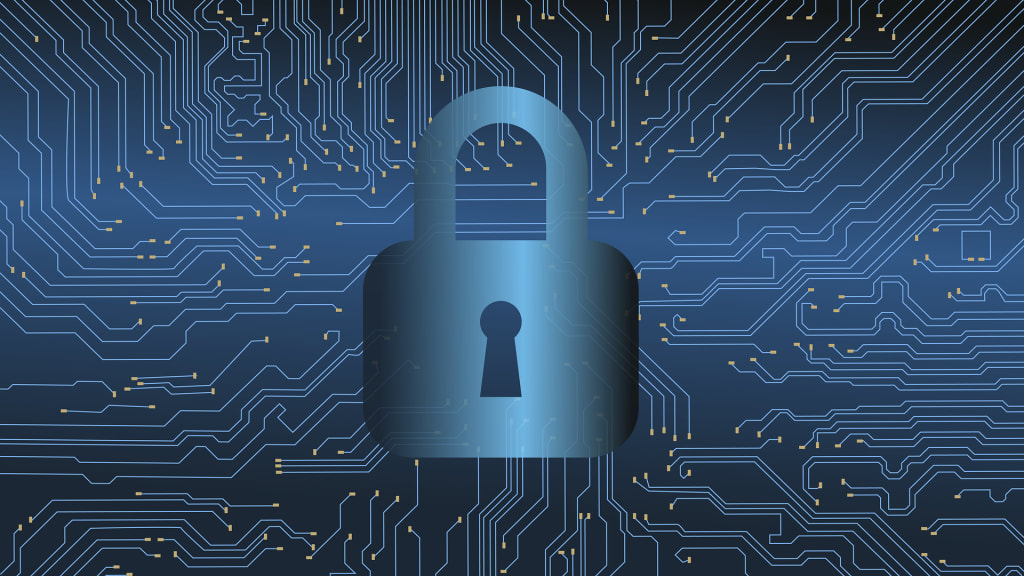What is "encryption" and why is it important for information security?
Encryption is a method used to encode data to prevent unauthorized users from accessing it

To ensure strong cybersecurity, organizations can leverage three critical tools: encryption, authentication, and authorization. Among these tools, encryption is particularly helpful as a first-level layer of protection to safeguard data and maintain cyber resilience.
By encrypting data, organizations can convert it into a code or cipher that can only be accessed by authorized parties with the appropriate key or password. This blog will explore the importance of encryption and how it can help prevent data breaches. Through end-to-end data encryption, organizations can establish robust defenses against cyberattacks, protecting their sensitive data and ensuring their security.
The first tool: Encryption
Encryption is a method used to encode data to prevent unauthorized users from accessing it. Essentially, it hides sensitive information and helps to secure communication between client apps and servers. Encryption protects private information and sensitive data, ensuring that even if an unauthorized individual gains access to it, they cannot read or decipher the content.
How To Encrypt Data?
Encrypting data involves transforming plain text into encoded, unreadable text that can only be read with a decryption key. There are several ways to encrypt data, including:
Using encryption software: Encryption software can be installed on your computer or mobile device, allowing you to encrypt files and folders on your device. Examples of encryption software include VeraCrypt, BitLocker, and AxCrypt.
Using encrypted messaging apps: Encrypted messaging apps like WhatsApp, Signal, and Telegram encrypt messages end-to-end, ensuring that only the sender and receiver can read them.
Using SSL/TLS encryption: Secure Sockets Layer (SSL) and Transport Layer Security (TLS) are protocols used to encrypt communication between web browsers and servers. This type of encryption is commonly used for online banking, e-commerce, and other sensitive transactions.
Using VPNs: Virtual Private Networks (VPNs) can encrypt all data transmitted between your device and the internet. This is particularly useful when using public Wi-Fi networks that may not be secure.
When encrypting data, it is important to use strong encryption algorithms and to keep the encryption keys secure. Without the proper decryption key, encrypted data cannot be accessed, which means it is crucial to keep the key safe and secure.
Symmetric and Asymmetric Encryption
Symmetric and asymmetric encryption are two common types of encryption algorithms used to protect data.
Symmetric encryption uses the same key for both encrypting and decrypting data. The encryption key is used to scramble the data, and the decryption key is used to unscramble the data. This type of encryption is fast and efficient, making it suitable for encrypting large amounts of data. However, the main drawback of symmetric encryption is that both parties must have access to the same key, making it challenging to distribute the key securely.
Asymmetric encryption, also known as public-key encryption, uses two different keys for encrypting and decrypting data. One key is a public key, which is shared with anyone who wants to send encrypted data. The other key is a private key, which is kept secret and used by the recipient to decrypt the data. Asymmetric encryption is slower and less efficient than symmetric encryption, but it offers stronger security because the private key is never shared or transmitted. Asymmetric encryption is commonly used for secure communication over the internet, such as in HTTPS, SSL, and SSH protocols.
In summary, symmetric encryption uses the same key for encryption and decryption, while asymmetric encryption uses two different keys, a public key for encryption and a private key for decryption. Both types of encryption have their advantages and disadvantages, and choosing the right one depends on the specific use case and security requirements.
Encryption is a Critical Cybersecurity Tool
As the frequency and complexity of cyberattacks continue to rise each year, it has become imperative for businesses to prioritize cybersecurity measures to safeguard their data and systems. Encryption is a crucial tool for protecting valuable information from malicious individuals. By encrypting data, even if attackers gain access to the system, they will be unable to decipher the content without the encryption key. This makes it an effective method to keep sensitive data inaccessible to unauthorized individuals.
About the Creator
Jason Davis
With over two decades of experience in the field, Jason Davis is a seasoned cyber security expert. His expertise extends across diverse systems, from small-scale businesses to large multinational organizations.






Comments
There are no comments for this story
Be the first to respond and start the conversation.